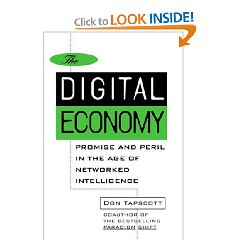Review: Strategies in the Electronic Information Industry: A Guide for the 1990’s (Infonortics in-depth briefings)
5 Star, Best Practices in Management, Information Operations, Information TechnologyReview: The Structure of Scientific Revolutions
5 Star, Change & Innovation, Culture, Research, Economics, Education (General), Education (Universities), Games, Models, & Simulations, History, Information Operations, Information Society, Intelligence (Commercial), Intelligence (Extra-Terrestrial), Intelligence (Government/Secret), Intelligence (Public), Strategy, Truth & Reconciliation, Values, Ethics, Sustainable Evolution, Voices Lost (Indigenous, Gender, Poor, Marginalized)Review: World Brain
5 Star, Consciousness & Social IQ, Culture, Research, Decision-Making & Decision-Support, Democracy, Economics, Education (General), Education (Universities), Future, History, Information Operations, Information Society, Intelligence (Collective & Quantum), Intelligence (Commercial), Intelligence (Extra-Terrestrial), Intelligence (Government/Secret), Intelligence (Public), Intelligence (Wealth of Networks), Misinformation & Propaganda, Philosophy, StrategyReview: The Digital Economy–Promise and Peril in the Age of Networked Intelligence
5 Star, Best Practices in Management, Budget Process & Politics, Capitalism (Good & Bad), Change & Innovation, Complexity & Resilience, Economics, Information Operations, Information Society, Information TechnologyReview: Out of Control–The New Biology of Machines, Social Systems, & the Economic World
5 Star, Change & Innovation, Consciousness & Social IQ, Culture, Research, Economics, Environment (Solutions), Information Operations, Information Society, Information Technology, Intelligence (Collective & Quantum), Intelligence (Commercial), Intelligence (Extra-Terrestrial), Intelligence (Government/Secret), Intelligence (Public), Intelligence (Wealth of Networks), Technology (Bio-Mimicry, Clean), Values, Ethics, Sustainable Evolution

![]() Co-Evolution of Man and Machine,
Co-Evolution of Man and Machine,
Review: Keeping Abreast of Science and Technology: Technical Intelligence for Business
5 Star, Best Practices in Management, Change & Innovation, Decision-Making & Decision-Support, Education (Universities), Environment (Solutions), Games, Models, & Simulations, Information Operations, Intelligence (Commercial), Science & Politics of Science, Technology (Bio-Mimicry, Clean)W. Bradford Ashton (Editor), Richard A. Klavans (Editor)
Dick is a genius, and he and Bradford Ashton have pulled together a number of very fine contributions in this book. Still, they sum it up nicely in the concluding chapter: “The formal practice of developing technical intelligence in American business is only in its infancy.” They have a nice appendix of sources on scientific and technical intelligence that is missing a few big obvious sources like the Canadian Institute for Scientific and Technical Information (CISTI) and the Defense Technical Information Center (DTIC) as well as the Institute of Scientific Information (ISI) and several smaller sources. On balance, this technical intelligence community is, as Bradford notes, in its infancy. It is U.S. centric, does not yet understand operational security and counterintelligence, is weak of cost intelligence, relies too heavily on registered patents, and has too few practical successes stories. Especially troubling is the recent trend within DIA and the Air Force of cutting off all funding for open source exploitation of Chinese and other foreign S&T sources, combined with a dismantling by many corporations of their libraries and most basic market research functions. This book is an essential reference and I admire its authors greatly-sadly, they are part of a small minority that has not yet found its full voice.










